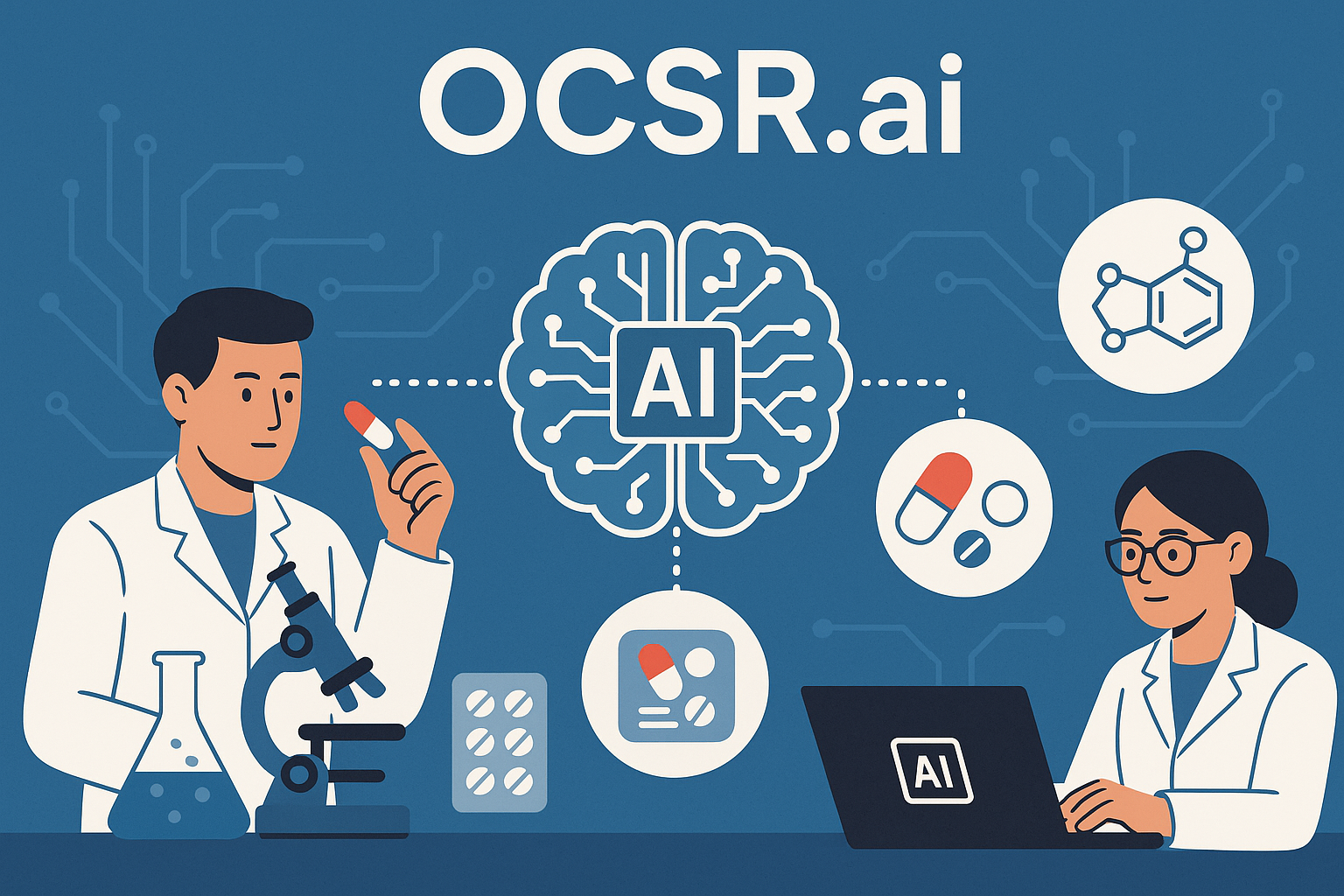How AI is Revolutionizing Drug Discovery: From Molecules to Medicine

The pharmaceutical industry stands at the cusp of a revolutionary transformation. Artificial intelligence, once confined to the realm of science fiction, is now actively reshaping how we discover, develop, and deliver life-saving medications. This seismic shift promises to compress decades of research into years, potentially saving millions of lives and billions in development costs.
The Traditional Drug Discovery Challenge
Traditional drug discovery has long been characterized by its "10-10-10" paradigm: 10+ years, $1+ billion, and a 10% success rate. This arduous process begins with identifying biological targets and screening millions of compounds, hoping to find the proverbial needle in a molecular haystack. Each failed compound represents not just financial loss, but time lost for patients desperately awaiting new treatments.
The complexity stems from the sheer scale of chemical space. Scientists estimate there are 10^60 possible drug-like molecules—a number so vast it dwarfs the number of atoms in the observable universe. Traditional methods can explore only a infinitesimal fraction of this space, like searching for a specific grain of sand across all the world's beaches with a magnifying glass.
Enter Artificial Intelligence: A New Paradigm
AI transforms this challenge through its ability to recognize patterns in vast datasets, predict molecular behaviors, and generate novel compounds with desired properties. Unlike traditional computational methods, modern AI systems learn from experience, continuously improving their predictions and recommendations.
Machine learning algorithms can now predict how molecules will interact with biological targets, estimate their toxicity profiles, and even suggest synthetic routes—all before a single experiment is conducted in the laboratory. This predictive power dramatically reduces the number of compounds that need physical testing, accelerating the discovery timeline while reducing costs.
"AI doesn't replace human intuition in drug discovery—it amplifies it. By handling the computational heavy lifting, AI frees scientists to focus on creative problem-solving and strategic decision-making."
— Dr. Sarah Chen, Director of Computational Chemistry
Real-World Breakthroughs
The impact of AI in drug discovery isn't theoretical—it's already producing tangible results. In 2020, researchers used AI to identify a novel antibiotic compound, halicin, capable of killing drug-resistant bacteria. The AI system screened over 100 million compounds in just days, a task that would have taken traditional methods decades.
Perhaps even more impressively, AI-designed drugs are now entering human clinical trials. Companies like Exscientia and Atomwise have used AI to design molecules for conditions ranging from obsessive-compulsive disorder to COVID-19, compressing the preclinical development timeline from 4-5 years to just 12 months in some cases.
The OCSR™.ai Advantage: Unlocking Historical Data
While many AI systems focus on generating new compounds, OCSR™.ai takes a unique approach by unlocking the wealth of knowledge hidden in decades of handwritten pharmaceutical research. Our technology recognizes that the next breakthrough might not require inventing something new—it might involve rediscovering forgotten insights from the past.
By digitizing and analyzing 50+ years of handwritten chemical structures and research notes with 93.2% accuracy, OCSR™.ai creates a searchable repository of molecular intelligence. This allows researchers to:
- Identify previously synthesized compounds that might have new therapeutic applications
- Learn from past failures to avoid repeating expensive mistakes
- Discover structural patterns and relationships that weren't apparent to the original researchers
- Build more comprehensive training datasets for next-generation AI models
Challenges and Ethical Considerations
Despite its promise, AI in drug discovery faces significant challenges. The "black box" nature of some AI algorithms makes it difficult to understand why certain predictions are made, potentially complicating regulatory approval. There's also the risk of bias in training data leading to drugs that work better for some populations than others.
Moreover, as AI accelerates drug discovery, we must ensure equitable access to these innovations. The technology's potential to save lives must not be limited by economic or geographic barriers. This requires thoughtful collaboration between technology companies, pharmaceutical manufacturers, regulators, and healthcare systems worldwide.
The Future of AI-Driven Drug Discovery
Looking ahead, the convergence of AI with other emerging technologies promises even greater breakthroughs. Quantum computing could enable the simulation of complex molecular interactions currently beyond our reach. Advanced robotics and laboratory automation will allow AI systems to not just design experiments but execute them autonomously.
We're moving toward a future where AI systems can:
- Design personalized medicines tailored to individual genetic profiles
- Predict and prevent drug resistance before it emerges
- Identify drug combinations that work synergistically
- Repurpose existing drugs for new therapeutic applications in days rather than years
Conclusion: A New Era of Hope
The integration of AI into drug discovery represents more than technological progress—it's a beacon of hope for millions suffering from diseases that currently lack effective treatments. By dramatically accelerating the pace of discovery while reducing costs, AI makes it economically viable to pursue treatments for rare diseases that might otherwise be overlooked.
At OCSR™.ai, we're proud to contribute to this revolution by ensuring that decades of pharmaceutical knowledge don't remain locked away in filing cabinets. Every handwritten structure we digitize, every connection we help researchers make, brings us one step closer to the next life-saving breakthrough.
The future of drug discovery is not about replacing human creativity and intuition with machines. It's about augmenting human capabilities with AI's computational power, creating a partnership that's greater than the sum of its parts. Together, we're not just revolutionizing drug discovery—we're reimagining what's possible in the fight against disease.
About the OCSR™.ai Research Team
Our research team comprises experts in computational chemistry, machine learning, and pharmaceutical sciences. We're dedicated to advancing the field of AI-driven drug discovery through innovative technology and collaborative research.
Learn more about our team →